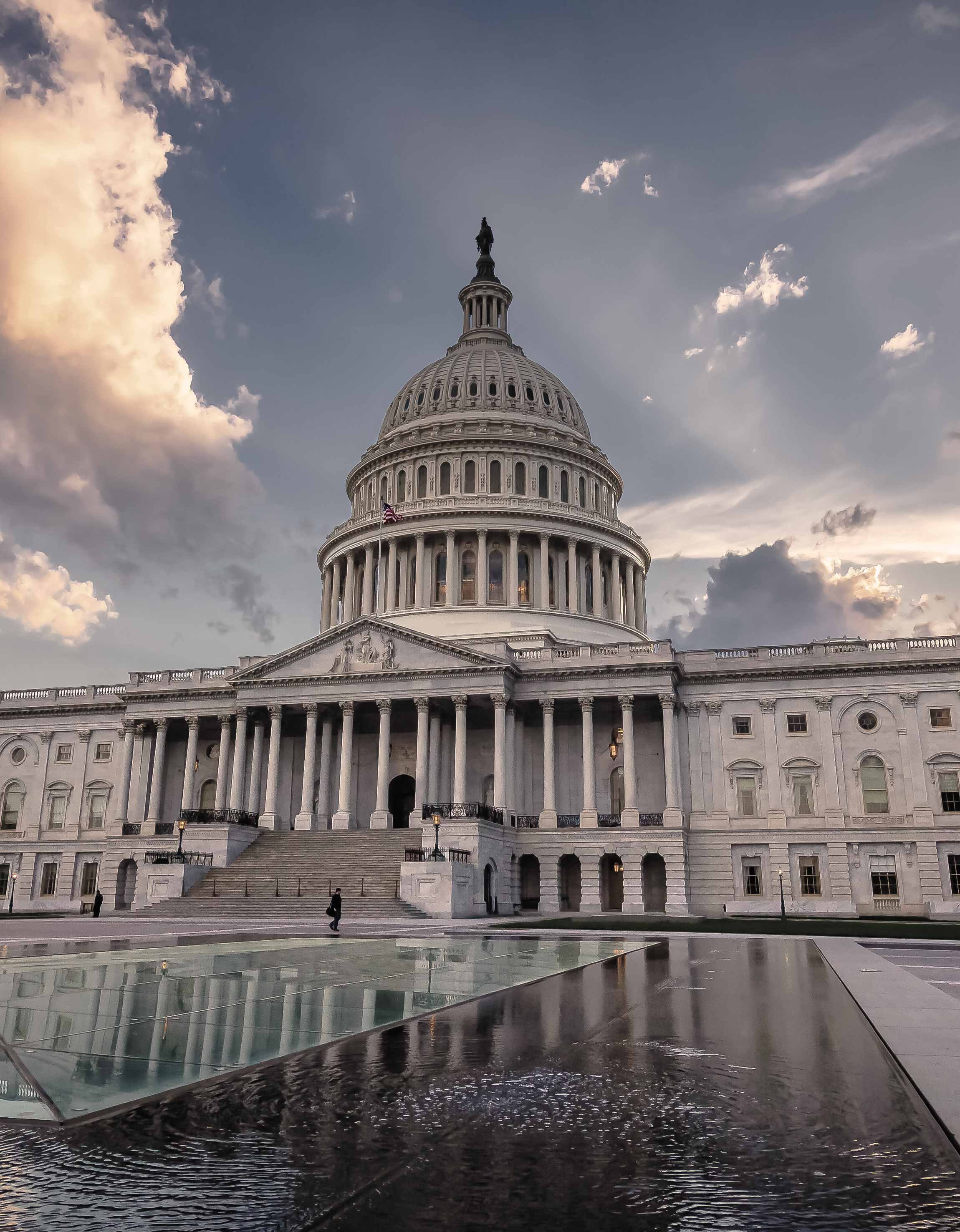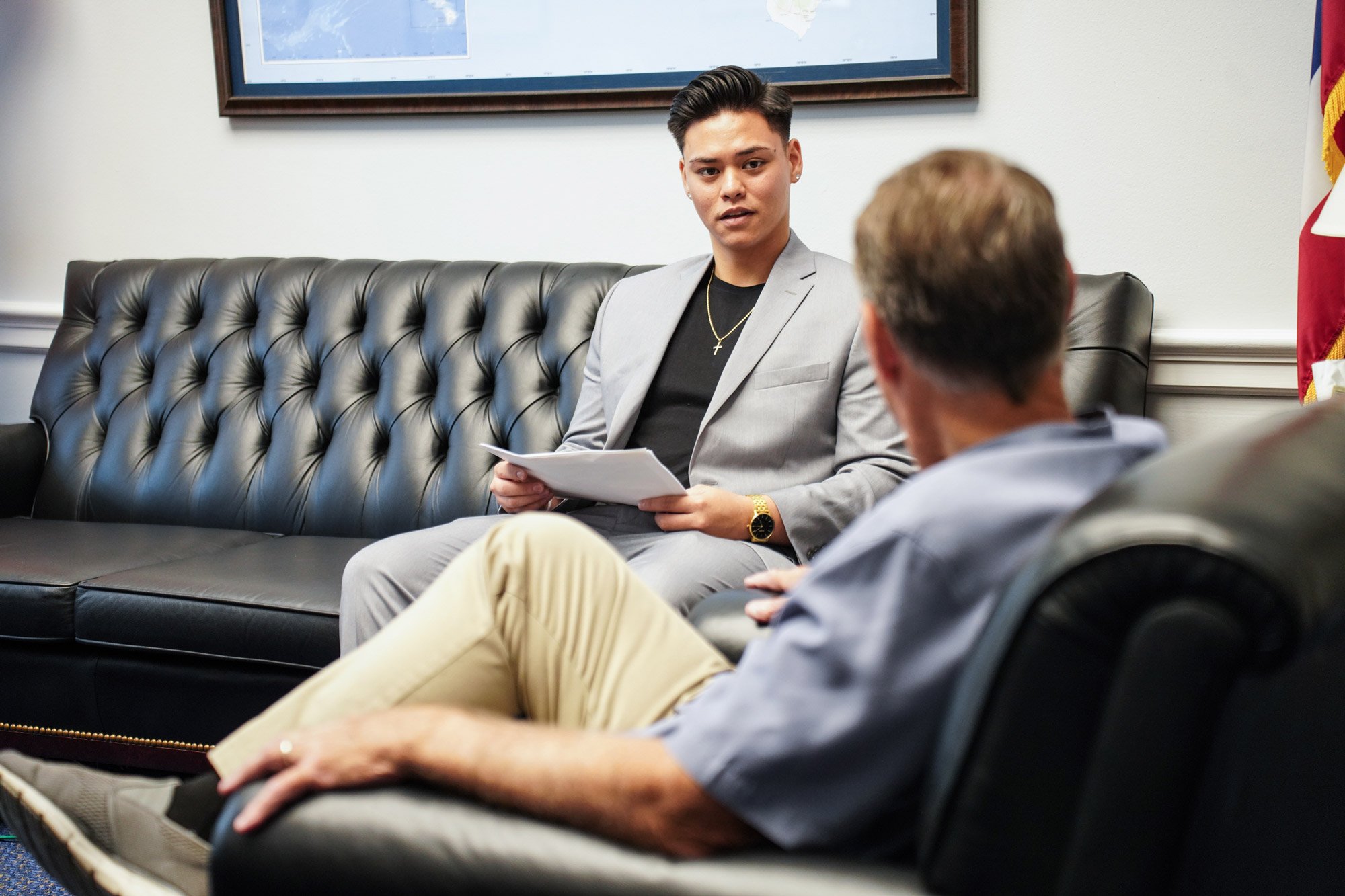A behind-the-scenes playbook to guide foster care advocacy on Capitol Hill
Part 4:
Congressional Caucuses / Your Advocacy Partners on Capitol Hill
THE SHORT VERSION: Did you know Congress has its own spin on advocacy groups? Lawmakers who share common interests create or join Congressional Member Organizations — commonly known as “caucuses.” Caucuses provide important venues for legislators to come together, often in a bipartisan way, to examine issues and build support for policy action. For over 10 years, the House and Senate have each hosted caucuses on foster youth. And caucus activity has been a crucial aspect of the history of youth-driven advocacy, sparking legislative efforts on issues ranging from education to health care to family connections. Ready to learn more? Let’s dive in…
The Basics
Congressional caucuses bring lawmakers together to support a common interest. By the latest count, there are at least 460 caucuses in the House and Senate. These are the key players all advocates should know:
The Senate Caucus on Foster Youth
The Senate Caucus on Foster Youth was created in December 2009 by Senator Charles Grassley (R-Iowa) in partnership with then-Senator Mary Landrieu (D-La.). The lawmakers set out to focus attention on the needs of youth in foster care, including those who reach 18 and “age out,” often without the support and stability of a permanent family. Presently, Sen. Grassley co-chairs the caucus with Sen. Debbie Stabenow (D-Mich.). Sens. Grassley and Stabenow are also members of the Senate Finance Committee, which you’ll remember from Part 2 as the primary authorizing committee for child welfare legislation. Therefore, the senators’ caucus work ties directly to their role on this consequential committee. The Senate Caucus on Foster Youth maintains an active schedule of briefings, roundtables, and other events where young people can share their foster care experience with members of Congress and their staff. Insights from youth who’ve experienced foster care and other policy experts advance lawmakers’ understanding of issues, including mental health, education, work, housing, sibling connections, family permanence, parenting, and more.
The Senate Caucus on Foster Youth was created in December 2009 by Senator Charles Grassley (R-Iowa) in partnership with then-Senator Mary Landrieu (D-La.). The lawmakers set out to focus attention on the needs of youth in foster care, including those who reach 18 and “age out,” often without the support and stability of a permanent family. Presently, Sen. Grassley co-chairs the caucus with Sen. Debbie Stabenow (D-Mich.). Sens. Grassley and Stabenow are also members of the Senate Finance Committee, which you’ll remember from Part 2 as the primary authorizing committee for child welfare legislation. Therefore, the senators’ caucus work ties directly to their role on this consequential committee. The Senate Caucus on Foster Youth maintains an active schedule of briefings, roundtables, and other events where young people can share their foster care experience with members of Congress and their staff. Insights from youth who’ve experienced foster care and other policy experts advance lawmakers’ understanding of issues, including mental health, education, work, housing, sibling connections, family permanence, parenting, and more.
“There’s nothing like a real-life story to put a face and focus on a project.”
– Senator Chuck Grassley
The Congressional Caucus on Foster Youth was created in 2011 by then-Representative Karen Bass (D-Calif.). Bass enlisted bipartisan co-chairs and more than 100 members of the House of Representatives to join the caucus to improve outcomes for the vulnerable yet resilient youth and young adults in foster care. Today, six bipartisan co-chairs lead the caucus: Rep. Gwen Moore (D-Wisc.-4); Rep. Don Bacon (R-Neb.-2); Rep. Sydney Kamlager-Dove (D-Calif.-37); Rep. Nancy Mace (R-S.C.-01); Rep. Zack Nunn (R-Iowa-03); and Rep. Mary Gay Scanlon (D-Penn.-05). As Chairwoman Moore says, these lawmakers “all come from different perspectives and backgrounds, but … all share a passion for helping our foster youth.”
“There’s nothing like a real-life story to put a face and focus on a project.”
– Senator Chuck Grassley
The Congressional Caucus on Foster Youth
FOSTER CARE ADVOCACY SPOTLIGHT:
The House and Senate caucuses on foster youth engage dozens of bipartisan policymakers in Congress, including those assigned to committees responsible for child welfare legislation, the Senate Committee on Finance and the House Committee on Ways and Means. Journey to Success maintains regular contact with Senate and House foster youth caucus members and their staff, including briefings where policymakers can hear directly from youth with experience in foster care.
Lived experience leaders participating in the Jim Casey Youth Opportunities Initiative share their insights at a July 2023 briefing for congressional staff hosted by Journey to Success in partnership with the Congressional Caucus on Foster Youth.
The National Foster youth Institute (NFYI)
The National Foster Youth Institute (NFYI) was created in conjunction with the Congressional Caucus on Foster Youth to facilitate the involvement of young people with foster care experience in child welfare policymaking. As one example, NFYI hosts an annual Foster Youth Shadow Day in partnership with the Congressional Caucus on Foster Youth to bring current and former foster youth to Capitol Hill to engage with Congress, learn more about policymaking, and develop advocacy skills.
The Congressional Coalition on Adoption (CCA)
The Congressional Coalition on Adoption (CCA) is a bipartisan, bicameral caucus that brings together members of Congress who share an interest in policy that promotes families for children. The CCA has existed for nearly 40 years, and its members have sponsored significant child welfare legislation, including the Adoption and Safe Families Act of 1997, the Promoting Safe and Stable Families Act, and the Intercountry Adoption Act. Current leadership of the Congressional Coalition on Adoption includes Senator Amy Klobuchar (D-Minn.), Representative Robert Aderholt (R-Ala.-04), and Representative Adam Smith (D-Wash.-09).
The Congressional Coalition on Adoption Institute (CCAI)
The Congressional Coalition on Adoption Institute (CCAI) is a nonprofit organization created in 2001 to align with the work of the Congressional Adoption Caucus. Since 2003, CCAI has led the Foster Youth Internship (FYI) program to create congressional internships for young adults who have experienced foster care. An annual policy report prepared by FYIs has been the basis for federal legislation and awareness. The Journey to Success campaign has reviewed every FYI policy report and reflected many report themes in our policy framework.

The legislative history of the Family First Prevention Services Act of 2018 (Family First) serves as a recent example of how caucuses spark and inform significant legislation.
Passed in 2018, Family First overhauled federal policy to help struggling families sooner so more youth could safely avoid foster care. Today, this family-centered legislation stands as a testament to the power of youth voices partnering with caucuses and motivating federal policymakers.
HOW IT WORKS
Securing a seat at the table
The Senate Caucus on Foster Youth participated in the 2010 filming of a documentary, “From Place to Place,” featuring foster youth advocating for change. As part of the caucus event in Washington, D.C., these youth joined a roundtable discussion with academics, policymakers, and other child welfare stakeholders. The young advocates bravely spoke their truth — on camera — and outlined their priorities for change, providing meaningful insights on complex policies. This type of event was novel. For many years, youth were invited to share their stories but were not fully included in policy discussions.
Convening working groups with youth with lived experience
Following the filming of “From Place to Place,” the Senate Caucus on Foster Youth held a series of working sessions with child welfare stakeholders, state partners, and, most importantly, nearly 30 current and former foster youth. During these sessions, youth advocates called for targeted policy solutions, including:
Alternatives to group homes
An end to the overprescription of psychotropic drugs
Approaches to promote “normalcy” — developmentally age-appropriate extracurricular, enrichment, cultural, and social activities like sports and school dances.
Support for sibling connections
A foster care “bill of rights”
Launching the Senate Caucus on Foster Youth
In 2009, Senator Chuck Grassley (R-Iowa) and then-Senator Mary Landrieu (D-La.) established the Senate Caucus on Foster Youth, crediting youth advocates. Grassley said at the time, “There’s nothing like a real-life story to put a face and focus on a project.” With the caucus, the senators created a space in Congress to continue youth engagement and monitor the landmark legislation enacted the previous year, the Fostering Connections to Success and Increasing Adoptions Act.
Forming the Congressional Caucus on Foster Youth
In 2011, the Congressional Caucus on Foster Youth launched, further creating opportunities for youth-led education and advocacy on Capitol Hill. The “Foster Youth Shadow Day” and the Foster Youth Internship Program that followed allowed members of Congress to get acquainted with young people who joined their offices as interns. Subsequently, these lawmakers introduced a series of bills directly informed by the experiences and priorities shared by these young people working in their offices!
Capturing national attention and securing policy victories
This advocacy formed the basis of a “Call to Action”— a set of policies released by Sens. Grassley and Landrieu in 2010 to improve the lives of foster youth. The senators’ call got noticed! Sens. Grassley and Landrieu were invited to join an episode of the popular “Dr. Phil” show to make the case for child welfare reform before millions of viewers. The following year, many of the above provisions highlighted by youth in the Call to Action formed the framework of legislation passed by Congress. And in 2014, legislation passed to prevent sex trafficking included normalcy provisions to help protect foster youth from isolation.
Passing pivotal legislation
Current and former foster youth advocates continued to be integral to policymaking in the following years — testifying before House and Senate committees on child welfare issues, reviewing legislation, and advocating for systemic change. Members of Congress heard from youth advocates on the need to provide upfront mental health and substance abuse treatment to help families stay together. These advocacy efforts coalesced in the development of Family First. Signed into law in 2018, Family First included policies to decrease inappropriate congregate care placements and provided new dedicated federal funding for upfront preventative services to help youth stay safely with their families.
Together, youth advocates and members of Congress involved in the House and Senate caucuses spearheaded bipartisan legislation considered one of the most substantial pieces of child welfare policy in decades. These partnerships will remain essential to our campaign’s continued work to improve opportunities and outcomes for all who experience foster care by promoting healing, family connections, and economic security.
take action!
The House and Senate foster youth caucuses are excellent venues for transition age youth and their allies to highlight issues and gain momentum. Encourage your state’s members of Congress to join if they’re not already a member, and don’t be afraid to reach out to staff with your policy ideas. As our case study shows, youth advocacy works!
Skimming the long list of congressional caucuses, you may see names that don’t immediately sound serious enough to merit Congress’ time: The Shellfish Caucus, the Cheese Caucus, the Tire Caucus, the Cut Flowers Caucus … really? But it’s important to realize that with these groups, lawmakers are coming together around shared areas of interest to promote policies important to constituents and industries that support jobs in their home states and districts. Plus, Cheese Caucus events sound like a great way to refuel between your Capitol Hill meetings!

THE BOTTOM LINE
While transformative change takes time, you already have allies on Capitol Hill within the foster care caucuses ready to hear from you!











